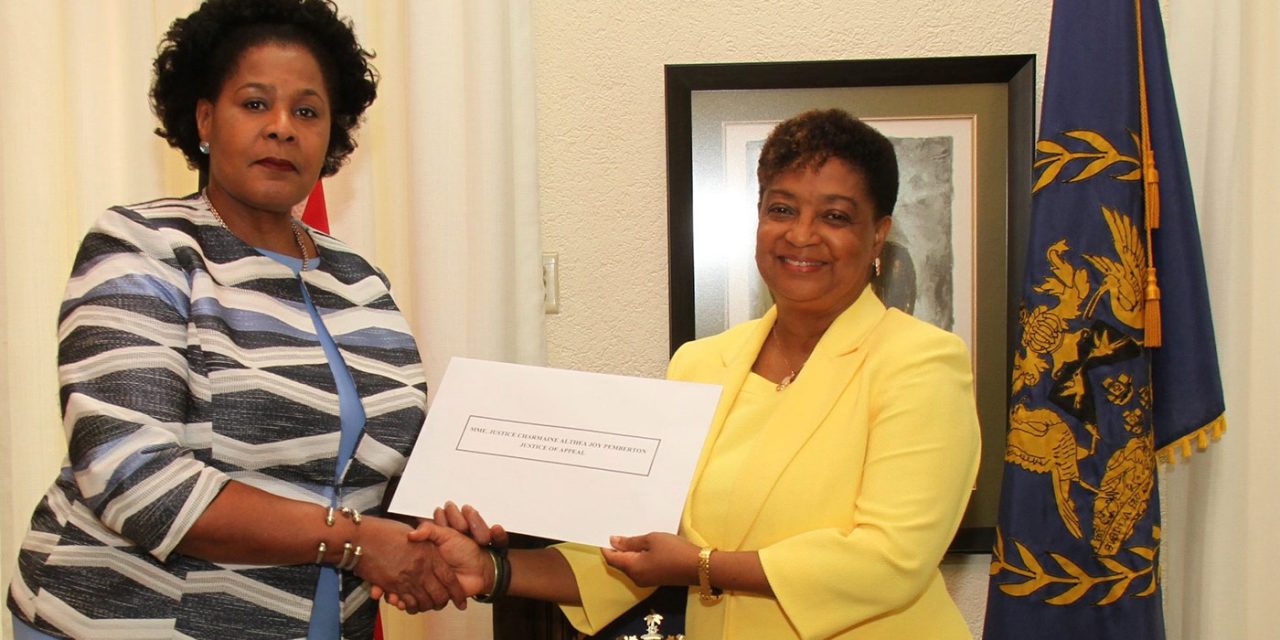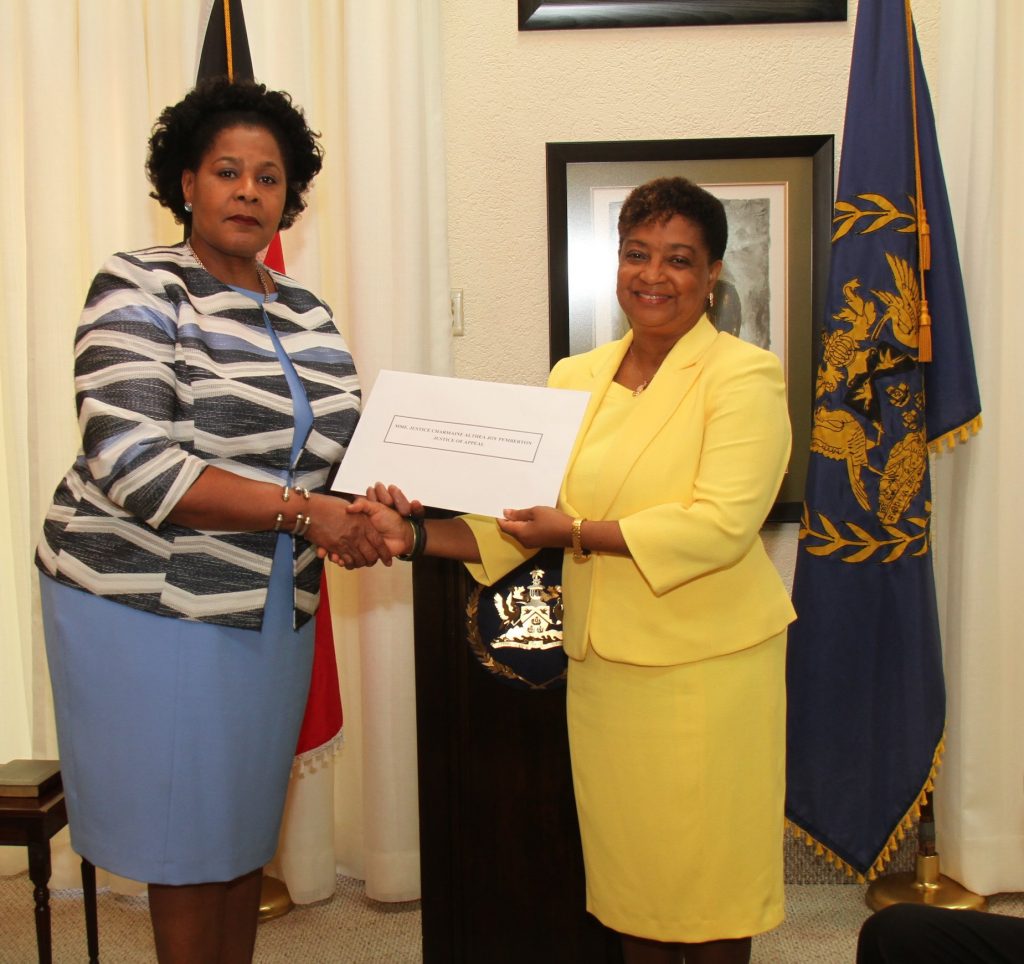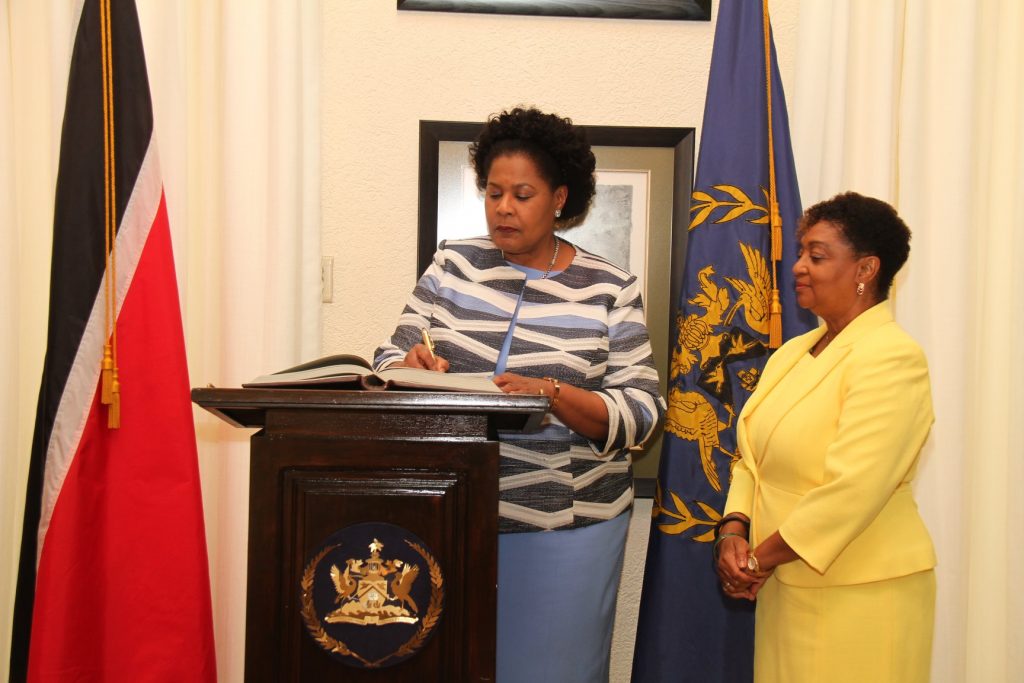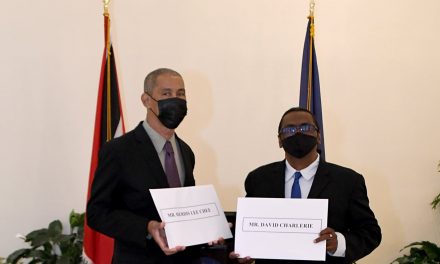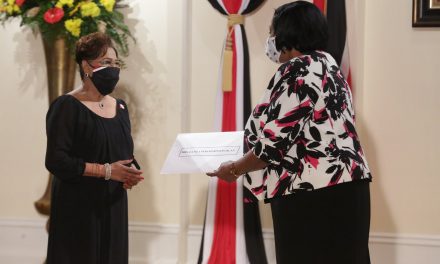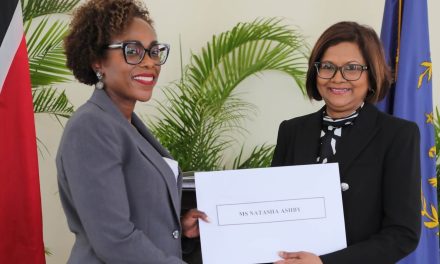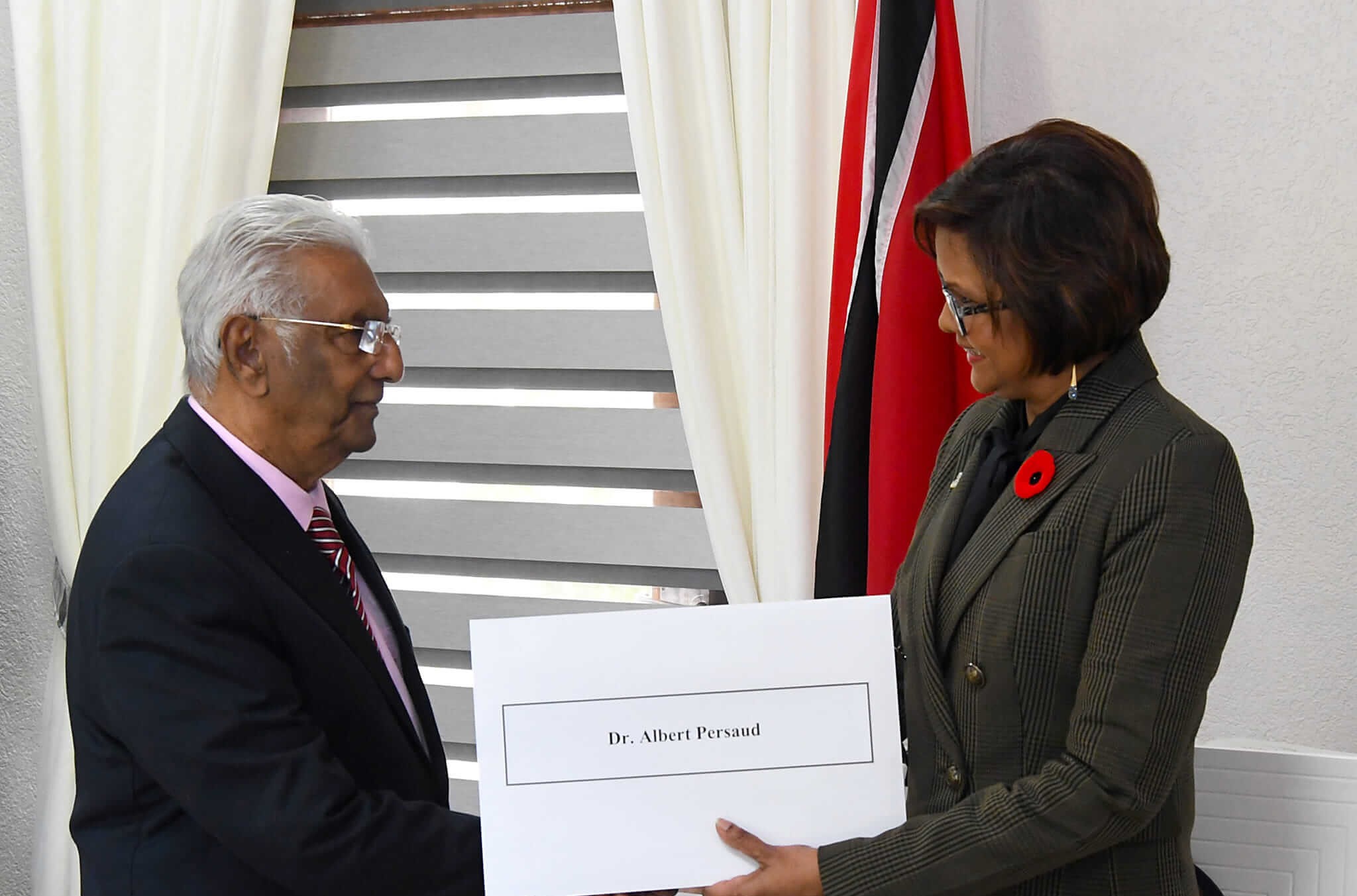Today, April 11, 2019, Justice of Appeal Charmaine Pemberton was sworn in as a member of the Judicial and Legal Service Commission (JLSC), under section 110(3)(a) of the Constitution of the Republic of Trinidad and Tobago; this, after what was, in my limited experience, an uncommonly robust consultation process.
This media release establishes no precedent, but given the unusual circumstances surrounding this appointment, I consider it useful to provide some information.
Pemberton JA was appointed a Puisne Judge in 2005 and elevated to the Court of Appeal in September 2016. Before serving in this jurisdiction, she served as a Puisne Judge in the Eastern Caribbean Supreme Court from 2002 to 2005. While her appointment to the Court of Appeal saw her leapfrog over several of her colleagues, this was by no means unprecedented.
On September 19, 2017, Pemberton JA was sworn in as a member of the JLSC by my predecessor-in-office. The consultation process had been done (July 21, 2017) referencing section 110(3)(a). The Prime Minister had no objection and his response contained a reference to section 110(3)(a). The Leader of the Opposition did not respond. However, the Instrument of Appointment was faulty, in that it purported to appoint Pemberton JA under Section 110(3)(b) of the Constitution. This error was drawn to my attention by way of a letter dated February 15, 2019, from Attorneys-at-Law representing Mr. Devant Maharaj. It was clear that the appointment could not stand.
Section 110(3)(a) provides that the appointment be made “from among persons who hold or have held office as a Judge of a Court having unlimited jurisdiction in civil and criminal matters in some part of the Commonwealth or a Court having jurisdiction in appeal from any such Court”.
Serving and retired Judges were therefore eligible. I thought it unwise to consider Puisne Judges as one function of the JLSC is to consider elevations to the Court of Appeal. A Puisne Judge could find it necessary to recuse him or herself from the deliberations, but this would not in itself be a satisfactory answer as the potential for awkwardness could arise if that Judge was bypassed.
On February 25, 2019, I began the constitutionally required consultation process with the Prime Minister and the Leader of the Opposition. During the consultation phase, the Leader of the Opposition raised the issue of whether there had been any complaints about the conduct of Justice Pemberton. The Leader of the Opposition enquired of the JLSC, which confirmed that there was no outstanding complaint/investigation. An Attorney-at-Law did in 2006 complain to the JLSC about the way in which he was treated in Court by Justice Pemberton, however no investigation was conducted as the JLSC determined that the complaint did not reveal any misconduct on the part of the Judge.
Pemberton JA’s attendance at JLSC meetings and interviews during her tenure was exemplary, in that she attended seventeen of the eighteen meetings and all twenty-three of the interview sessions. Pemberton JA attended no meetings after February 20, 2019.
Notwithstanding that there were eligible Judges senior to Pemberton JA, in all of the circumstances, including that:
the intention had always been to appoint Pemberton JA under section 110(3)(a); the error was no fault of Pemberton JA; she was faithful to her appointment; there was nothing to suggest that she was in any way unfit to hold the position; had her original appointment been valid, Pemberton JA would have been eligible for reappointment at the end of her term; the Prime Minister, once again, had no objection to the appointment and having duly considered all matters raised by the Leader of the Opposition, I appointed Pemberton JA as a member of the JLSC under section 110(3)(a).

